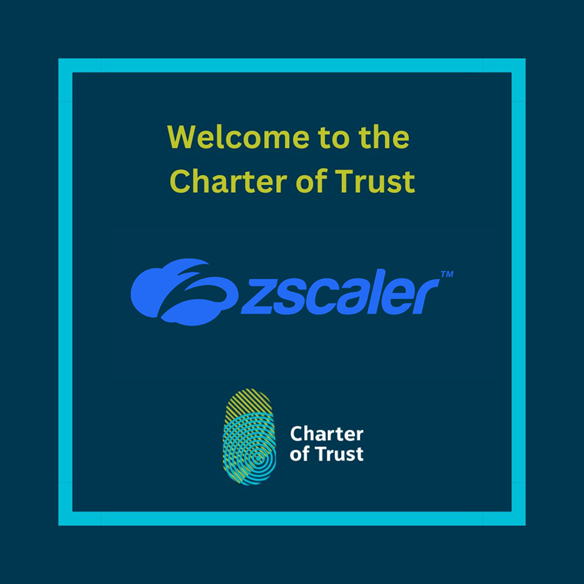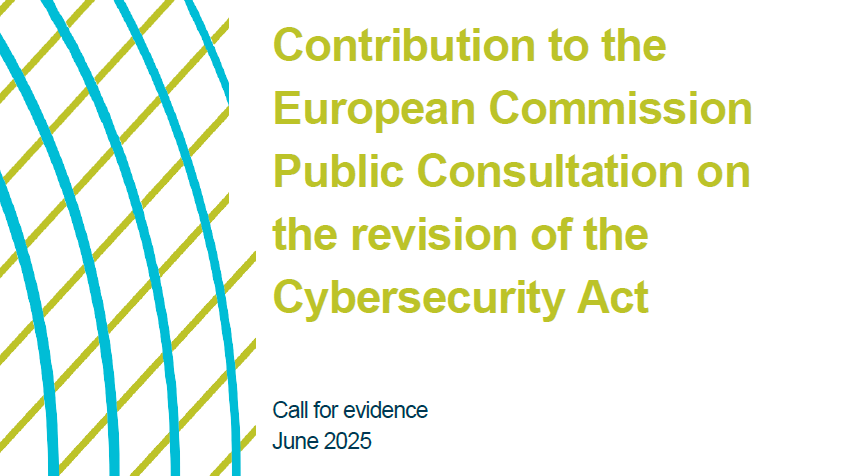Today's opening of the 2023 Munich Security Conference marks the fifth anniversary of the Charter of Trust (CoT). This celebration is an opportunity to reflect on the alliance's achievements and growth since 2018.This milestone is also an opportunity to discuss the path ahead for cybersecurity, as the world faces unprecedented levels of cyberthreats. The CoT remains convinced that secure and trusted digital technologies, infrastructures, products and solutions are the prerequisite for overcoming our global challenges.
Never before has the Munich Security Conference (MSC) faced such a wide variety of issues: War in Europe, escalating geopolitical tensions in the Asia-Pacific region, global supply shocks and energy shortages are just a few headlines currently raising security concerns. From data theft and sabotage of critical infrastructures and political institutions in major democracies to attacks on utilities in war-torn regions, one aspect is central to most of today’s threats: cybersecurity. Unfortunately, cybersecurity is often awarded lower priority than the more tangible realities of the crises themselves. This negligence can be a catalyst for cyberattacks, with dire political, economic and social consequences.
Cyberspace holds countless opportunities for governments, companies and private individuals alike. But it is not free of dangers, since novel technologies and digital innovations can be exploited by criminals or rogue entities for personal and political gains. Cyberattacks, spyware and ransomware have caused significant damage across a wide range of areas in recent years. Since 2021, ransomware has among other things been used to disrupt national healthcare systems, shut down crucial oil pipelines and incapacitate government agencies. The scale and scope of such attacks is increasing; the cost of cybercrime to the world economy is estimated at as much as $10.5 trillion by 20251. The dangers of insufficient cybersecurity are most dramatic in the context of international conflict: State-sponsored cyberattacks can take on a multitude of forms, ranging from espionage and disinformation to attacks on critical infrastructures and companies, as recently seen in Ukraine.
Such threats call for international, non-partisan efforts to ensure the crucial security of IT systems against cyberattacks. Based on this premise, Siemens and eight industry partners established the Charter of Trust at the 2018 MSC. The mission of the alliance, which is still in focus today, is to create the trust needed in IT systems for consumers, companies and governments to build a cybersecure future worldwide.
Rallying to this mission, the CoT now counts 17 multinational and cross-industrial members, with Microsoft joining in November 2022. The CoT has also grown its pool of Associated Partners to establish a global network of regulators, research institutes, universities and think-tanks sharing its vision for a stronger digital security environment. There are now 13 Associated Partners, with 5 new partners joining in 2022: the Cloud Security Alliance, the CyberPeace Institute, the Global Cyber Alliance, the Brazilian Center for International Relations (CEBRI) and the South African Council for Scientific and Industrial Research (CSIR).
The CoT has spent its first five years focusing on how to protect the data of individuals and businesses and to prevent damage to people, companies and infrastructure, as well as to secure the foundation for confidence as the basis for a flourishing networked, digital world. Among the many measures launched by the CoT, the “Security by Default” principle has invited partners to integrate security concerns as early as the design phase. Members have also committed to pass on baseline cybersecurity requirements to their suppliers, with the aim of enhancing cybersecurity along the entire supply chain. In its efforts to implement a cross-industry approach, the CoT has focused on providing information, training and other resources to small and medium-sized enterprises.
Trustworthy AI is part of the CoT’s portfolio. A critical aspect of cybersecurity that focuses on the development and deployment of AI systems that are reliable, secure, and transparent. Trustworthy AI can help prevent, detect, and respond to security threats in a responsible and ethical manner. Without trustworthy AI systems, they can turn into security vulnerabilities that can be used in malicious ways. Ensuring trustworthy design and deployment of AI systems is crucial for the overall security of digital systems and infrastructure.
Looking ahead, the CoT is committed to use its cybersecurity toolbox – baseline requirements, resources and capabilities – to provide all interested stakeholders with unique guidance on how to promote cyber-resilience and navigate complex cybersecurity technology and regulatory rulebooks. Most recently, the CoT published on its website a guideline document for achieving secure development life cycles. The guideline shows how a product or service can be designed within a secure development process and how to integrate the baseline security mechanism.
Natalia Oropeza, Chief Cybersecurity Officer & Chief Diversity Officer at Siemens: “The Charter of Trust calls for peace, solution-focused policies and international collaboration. We are convinced that only with secure and trusted digital technologies, infrastructures, products, and solutions will we overcome global challenges.”
Meeting in Munich today on the margins of the 2023 MSC, CoT members will have the opportunity to reflect on the work accomplished since the alliance’s inception and pave a way forward.
You can follow these discussions virtually by registering here: cot2023.events.dc.siemens.com
Find out more about the Charter of Trust on our website: www.charteroftrust.com/about/


You may also like

Charter of Trust Welcomes Zscaler
Zscaler is a leading cloud enterprise security provider helping global businesses accelerate their digital transformation by becoming more agile, efficient, resilient, and secure.
With Zscaler as a partner in the Charter of Trust, we aim to strengthen global cyber resilience through trust – by fostering actionable collaboration between industry leaders, governments, and public-private platforms. Zscaler brings robust expertise and innovation to the table, making it the ideal partner to drive this mission forward.
“Zscaler is excited to drive meaningful change alongside our new partners, laying a foundation of trust essential for successful digital transformation,” said Sam Curry, Zscaler CISO. “In today’s world, the need for reducing inherent trust and default access has never been greater. To truly stay ahead of ever-evolving threats, we must unite as a coalition of practitioners. Cyber attackers aren’t taking breaks, and with advancements like artificial intelligence, quantum cryptography, and emerging technologies on the horizon, collaboration is the key to securing the future.”
“We are proud to welcome Zscaler to the Charter of Trust. Their focus on cybersecurity innovation and commitment to openness reflect our shared ambition to create a safer, more resilient digital future. Together, we’ll strengthen trust, transparency, and security across the global digital landscape.” highlighted Dr. Summit Chada, Charter of Trust Co-Chair and COO Group Security & Business Lines CISO at Atos.
“With Zscaler as a Partner of the Charter of Trust, we believe that we can strengthen the global commitment to secure digital transformation by combining technological innovation with the Charter of Trust’s collaborative approach to cybersecurity leadership.” Ralf Schneider, Charter of Trust Co-Chair and Senior Fellow and Head of Cybersecurity and NextGenIT Think Tank at Allianz SE, welcomes Zscaler to the Charter of Trust.
We are excited to join forces and work together to advance digital trust and security across industries.

Contribution to the EU Commission Public Consultation on the revision of the Cybersecurity Act
We support Policy Option 2, which focuses on targeted regulatory measures that address key challenges without creating unnecessary complexity. In this context, we emphasize the need to enhance the role and resources of ENISA, to ensure effective implementation of both current legislation and the European Cybersecurity Certification Framework (ECCF).
Our recommendations aim to improve transparency, collaboration, and efficiency across the EU’s cybersecurity landscape. These include:
- Introducing clear timelines for the development of certification schemes.
- Enhancing stakeholder engagement throughout the process.
- Establishing more structured communication channels between ENISA, the Stakeholder Cybersecurity Certification Group (SCCG), and sectoral ISACs (Information Sharing and Analysis Centers).
We call for a stronger ECCF, one that is transparent, inclusive, and aligned with international standards to foster global interoperability and ease compliance for organizations across borders. Equally critical is the harmonization of certification practices across EU member states and the mutual recognition of certifications to minimize regulatory fragmentation.
The Charter of Trust advocates for technically robust, standards-based certification schemes, with well-defined roles and responsibilities. We also stress the need for clarity on the interplay between voluntary and mandatory certifications, particularly in relation to the upcoming Cyber Resilience Act (CRA).
To streamline compliance and reduce administrative burden, we propose a unified, risk-based incident reporting regime that consolidates requirements under regulations such as NIS2, CRA, GDPR, and DORA. This would not only simplify reporting for organizations but also enhance the EU’s overall cyber resilience. In addition, we recommend incorporating liability protections and grace periods for incident disclosure.
Finally, we urge the Commission to strengthen supply chain security by adopting a risk-based classification approach and establishing baseline cybersecurity requirements for ICT suppliers.
The Charter of Trust remains fully committed to supporting the European Commission in shaping a secure, resilient, and trusted digital future for Europe. We look forward to continued collaboration in building a cybersecurity framework that meets the needs of all stakeholders, today and in the years to come.




